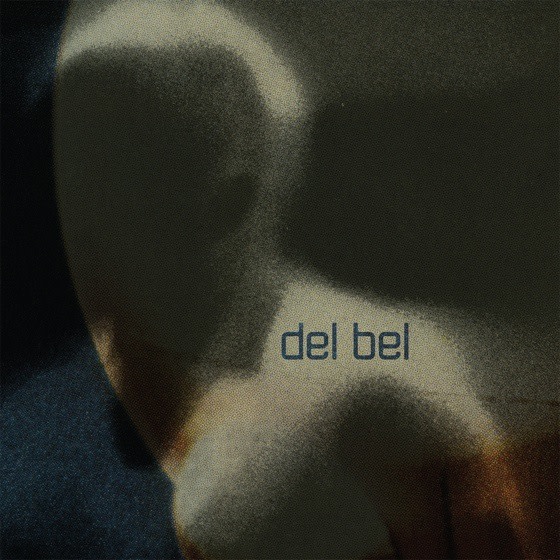After gathering momentum in 2011 with the release of their highly acclaimed debut album, Oneiric, haunting pop orchestra Del Bel took a brief hiatus while singer Lisa Conway finished a degree. With the return of Conway (a melodious Wednesday Addams) has come the momentum that their debut success afforded them, picking up right where they left off. Their sophomore release, a self-titled album with nine tracks, is the musical equivalent of a fatally attractive haunted house with an especially talented bandleader (Tyler Belluz) conducting a symphony of ghouls from a dimly lit corner of the basement.
To construct the eerie atmosphere that surrounds the songs, Del Bel use a combination of digital and acoustic instrumental sounds, such as percussive pluck noises to simulate drops of rain into a bucket on "The Rains," violin whines and screeches for dusty door hinges on "Intermezzo" and galloping tom strikes to mimic sprinting horses on "Stallion." Not only are the sound effects dynamic contributions to the rhythm and melody of the songs themselves, they also conjure visions of places and things that enhance the storytelling of the album. The record plays like a theatrical production, with an apparent arc; there's an opening monologue of sorts ("In My Solitude"), intermission ("Intermezzo") and epilogue. Appropriately, the band identify their sound as "cinematic score/film noir."
The spooky album is filled with Beetlejuice surrealism, featuring narratives and instrumentation that shift and change into unexpected forms. Cryptic storytelling, remarkably effective because of the juxtaposition of Conway's sweet voice and the subject matter, is most fantastic on "Old Magic," on which she sings, "That old worm's got a big, big mouth and I know he'd like to eat ya, dig you a hole in the family plot, I bet they'd all love to meet ya." The setting of the scene shifts dramatically on the next track (western styled ballad "The Stallion"), but the chilling nature of the lyrics remains the same: "Our father's fame was massacre, the family trade is murder." An enthralling story unfolds throughout the album, and the vivid stage is erected by the combined efforts of the large ensemble.
The aptly titled concluding track, "Epilogue," plays the listener out in a mournful, almost militaristic "Taps" fashion. The abrupt end to all the layered noise, and the substitution of a single trumpet followed a grouping of them, is the element that will resonate with the listener the longest. On an album that succeeds in projecting an aura of spookiness and the Halloween-ish fear of things that go bump in the night, the lone call of a trumpet echoing into void is truly the most haunting.
(Missed Connection Records)To construct the eerie atmosphere that surrounds the songs, Del Bel use a combination of digital and acoustic instrumental sounds, such as percussive pluck noises to simulate drops of rain into a bucket on "The Rains," violin whines and screeches for dusty door hinges on "Intermezzo" and galloping tom strikes to mimic sprinting horses on "Stallion." Not only are the sound effects dynamic contributions to the rhythm and melody of the songs themselves, they also conjure visions of places and things that enhance the storytelling of the album. The record plays like a theatrical production, with an apparent arc; there's an opening monologue of sorts ("In My Solitude"), intermission ("Intermezzo") and epilogue. Appropriately, the band identify their sound as "cinematic score/film noir."
The spooky album is filled with Beetlejuice surrealism, featuring narratives and instrumentation that shift and change into unexpected forms. Cryptic storytelling, remarkably effective because of the juxtaposition of Conway's sweet voice and the subject matter, is most fantastic on "Old Magic," on which she sings, "That old worm's got a big, big mouth and I know he'd like to eat ya, dig you a hole in the family plot, I bet they'd all love to meet ya." The setting of the scene shifts dramatically on the next track (western styled ballad "The Stallion"), but the chilling nature of the lyrics remains the same: "Our father's fame was massacre, the family trade is murder." An enthralling story unfolds throughout the album, and the vivid stage is erected by the combined efforts of the large ensemble.
The aptly titled concluding track, "Epilogue," plays the listener out in a mournful, almost militaristic "Taps" fashion. The abrupt end to all the layered noise, and the substitution of a single trumpet followed a grouping of them, is the element that will resonate with the listener the longest. On an album that succeeds in projecting an aura of spookiness and the Halloween-ish fear of things that go bump in the night, the lone call of a trumpet echoing into void is truly the most haunting.
